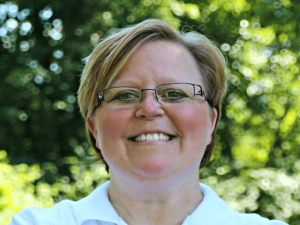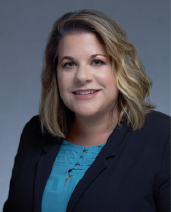Interview by Anita Cooper
In the real estate world, investors have a lot of choices to grow their portfolios; fix and flip, buy and hold, residential, multi-family or commercial, and finally, one type of investment that’s often forgotten or at the least remains shrouded in mystery: note investing.
Note investing is a fantastic way to grow your wealth, but until the last ten or so years, it’s not been on the radar of many property investors. We sat down with Jasmine Willois, founder of The Note Assistance Program (N.A.P.) to learn more about her and to discover how her organization can very often help investors reap double digit returns.

Question: Jasmine, how did you get involved with note investing?
ANSWER:Note investing is one of those things that kind of came to me. I started out with a real estate investment club called Lady Landlords of San Diego, and that really took off! We ended up expanding to two clubs, the latter being Lady Landlords of Orange County.
After years of flipping homes, offering turn-key investments (rentals) and some life changes, it occurred to me that I didn’t want to work this hard at investing. So I called a hedge fund manager I knew from networking, and we will it off. I ended up shadowing him for the next two years of my life, and learning everything he did inside and out.
Question: Do you enjoy your work?
Yeah, it’s exhilarating… it really fits my personality. It’s something that allows me to use my problem solving skills to help those in need. You see, I used to be a day trader and a stock broker. It was a lot of money, but not as rewarding. With note investing I’m able to make good money and also feel good about what I do.
Question: Why should investors add notes to their investment portfolios?
ANSWER: Outside of the sheer return, which is very alluring — it’s really a product that, whether investors know it or not, they’re most familiar with.
The majority of people use traditional means to invest and save, such as stocks, bonds, ETFs and mutual funds. These vehicles are really hard to understand and that’s the difference with notes, if explained correctly almost anyone can get it.
Again, because most of us are familiar with the underlying asset, real estate and even further a majority of them have experience getting mortgage loans from one of the bigger mortgage banks, like Wells Fargo or Chase.
As far as the underlying asset, which is the actual real estate, investors who buy notes are already very familiar with the concept. They’ve bought a home before with a loan, so whether they realize it or not at first, they’re very familiar with the product.
Question: What is The Note Assistance Program process and how quickly can investors expect it to take?
ANSWER: Well there are two opportunities, but what is making this revolutionary and bringing real change to the market is that we have built a platform for the retail investor. You no longer have to go to a $16,000 to $40,000 program unless you need the crowds.
Until recently, the past three to six years, this side of the market really wasn’t open to the average investor, never-mind the fact that still to this day it’s hard to find out about notes without running into a guru, broker joker or scam artist.
One product we offer is our Non-Performing Note Trade Desk. Here you will find a cornucopia of notes usually around $35M to $55M worth of unpaid balances nationwide that can be cherry picked.
Investors have access to tapes that are direct from the seller, so no daisy chains! And here’s the most exciting part, because we have established such a track record with the sellers, our clients are actually benefiting from lower pricing than they can find anywhere else. Our members benefit from our relationships by being able to curtail on a bulk trade or with direct pricing from the sellers.
This is something the average note buyer cannot get just due to barriers of entry. Seasoned investors love our trade desk because they are finding that we have the inventory and the pricing that cannot be beat. Even in cases where they have access to the same inventory our the transparency and pricing you find on our trade desk is hard to beat.
They get to benefit from those relationships with my pricing so they’re buying in bulk, and then they get direct pricing from the seller there, THAT’s something that the average individual can’t get.
The second way investors benefit from The Note Assistance Program is the educational piece. We’ve put together the most comprehensive on-line note education platform to date. This platform takes out all the fluff and distractions that can be found to throw investors a loop.
For those, like me who learn best by doing, there is our accelerated hands-on program where we have a flat fee. This program is different because you have to be committed to buying a note to join, it’s not one of those programs where you can join and hang out for a few years and not invest.
Like I mentioned, we have well over 37M worth of inventory on our trade desk as we speak.
We’ve got big banks like Bank of America, all the way to smaller hedge funds in rural america. So for those who are committed to learning, buying and have the capability the program is here for you.
Through this program we offer support for the life of the loan the investor purchases. This in not a joint venture situation where we split the profits in the end, you get the full experience and the full profit at the end of the investment. To that point, being actively involved with your note is mandated here at The Note Assistance Program.
So you’ve got to know how to be active and know what you’re doing. This industry is just as dangerous as the others, you can hurt yourself and the borrowers so it’s very important that you are trained correctly. I have found that most of the programs out there are too cumbersome or leave out certain tips and best practice that ultimately leave the investor dependent on the guru. We do it differently here, and that is how we are shaking up the industry.
Question: How does the additional layer of protection work?
Answer: The protection really is for the people using self directed IRAs. It’s not a “dollar-for-dollar” type of protection; it’s really about keeping these investors compliant with IRS regulations, and avoiding decisions that jeopardize their tax benefits. If you own a self directed IRA, you shouldn’t be doing “hands-on” activities with the investment. There is a fine line with the IRS, they have prohibited transactions and even disqualified people for investors to navigate around. So a lot of people choose to use The Note Assistance Program and it’s team to handle these grey areas.
Most investors want to be active so we train them to outsource with the professionals in the industry, and extend our black book of trusted vendors to them as well. There is no need to become an attorney, to learn how to read title or do foreclosures on your own. We attract those investors who want to build a working portfolio, not another job. We focus on building the right team of professionals who can help keep us out of trouble, because as I mentioned, you can loose money.
Question: How many investors have you helped?
Answer: So far we have helped over 200 people since we opened our doors. We’ve expanded and added two locations one in Newport Beach, CA and another in Bayonne, New Jersey. Our investors are very successful, which in turn is why we are successful. We are not running a private island or club, it’s a community of investors that have established and implemented best practices.
We take our community of clients in small teams. The classes for the Non-Performing note lab that we teach isn’t more than thirty-two.
Four times a year, I get out there and teach small classes of 20 or less in our 2-Day Non-Performing Note Lab as well, so that has helped us with our reach. We keep those classes small and practical so each investor can get what they need from the experience. We want to make sure the investor is given a real life view of what it means to be a note investor, not a lot of hype.
Question: What would you say is the average return an investor could expect with a note?
Answer: It’s definitely double digits, and if you approach the business the right way you can do that consistently.
That’s what this is really about, beating Wall Street. We get these numbers because of the relationships we have built over the years with these banks, and because we have a system of people who work our system. We also only play in the 1st position space, so we aren’t buying 2nds or 3rds for that matter. You will find that most investors are junkies for control and security, we find both when note investing.
With that first position comes THE security and the control that we’re looking for, to make sure that we can tackle those types of returns. Unlike second or third position, when you buy in first position, you pretty much “win some and win some”, and that’s what appeals to me.
ABOUT JASMINE WILLOIS
 An advocate for responsible investing Jasmine spends her time educating audiences on conservative real estate strategies. She has owned rentals and flipped out-of-state properties since 2005 in states such as California, Mississippi, Indiana and New Jersey to name a few. She is the Managing Director of The Note Assistance Program a firm that provides additional security and education on real estate investing, specifically with non-performing notes. Her reputation for the judicious use of resources, result-oriented management style and skillfull negotiations, has opened many doors.
An advocate for responsible investing Jasmine spends her time educating audiences on conservative real estate strategies. She has owned rentals and flipped out-of-state properties since 2005 in states such as California, Mississippi, Indiana and New Jersey to name a few. She is the Managing Director of The Note Assistance Program a firm that provides additional security and education on real estate investing, specifically with non-performing notes. Her reputation for the judicious use of resources, result-oriented management style and skillfull negotiations, has opened many doors.
Jasmine offers a unique blend of experience. She received her B.A in Economics from California State University at Long Beach, and enthusiastically accepted her first job as an equity trader with Joseph Stevens, in New York, NY. She emotionally ended her 7-year long career on Wall Street as financial advisor with Morgan Stanley Dean Witter after losing colleagues to the world trade center attacks.
Jasmine focuses on conservative real estate cash flow strategies and the abundance of opportunities that lay out side of her backyard. She hosts a note mastermind at her Note Lunch & Learn every Thursday from noon to 2 pm at her Newport Beach, Calif., office. Find out more on Meetup.com or their Facebook page.
Photo caption:Known for her signature pink cowgirl hat, Jasmine Willois, MBA, likes to incorporate fun while learning about a serious topic: distressed notes.





 An advocate for responsible investing Jasmine spends her time educating audiences on conservative real estate strategies. She has owned rentals and flipped out-of-state properties since 2005 in states such as California, Mississippi, Indiana and New Jersey to name a few. She is the Managing Director of The Note Assistance Program a firm that provides additional security and education on real estate investing, specifically with non-performing notes. Her reputation for the judicious use of resources, result-oriented management style and skillfull negotiations, has opened many doors.
An advocate for responsible investing Jasmine spends her time educating audiences on conservative real estate strategies. She has owned rentals and flipped out-of-state properties since 2005 in states such as California, Mississippi, Indiana and New Jersey to name a few. She is the Managing Director of The Note Assistance Program a firm that provides additional security and education on real estate investing, specifically with non-performing notes. Her reputation for the judicious use of resources, result-oriented management style and skillfull negotiations, has opened many doors.

 Tim, who would much rather talk about his great team members and customers, than himself, can’t be ignored. He continues to both harness an elite level of thoroughbred leadership, and be highly relatable to.He’s been the Marine who just got out of the service with no money and no credit. He has been the once successful hard working professional who had to fend off foreclosure in the great recession. Yet, he has also headed up Blackstone’s B2R Finance division. Now he also knows the point when you’ll get the back out on the new Mustang, and when to throttle it to maneuver safely. He’s been where you are, and knows the way forward.
Tim, who would much rather talk about his great team members and customers, than himself, can’t be ignored. He continues to both harness an elite level of thoroughbred leadership, and be highly relatable to.He’s been the Marine who just got out of the service with no money and no credit. He has been the once successful hard working professional who had to fend off foreclosure in the great recession. Yet, he has also headed up Blackstone’s B2R Finance division. Now he also knows the point when you’ll get the back out on the new Mustang, and when to throttle it to maneuver safely. He’s been where you are, and knows the way forward.














 I came up with the following rules of successful real estate investing over my many years of successes and failures. These are the same rules I follow today and share with our clients at Norada Real Estate Investment.
I came up with the following rules of successful real estate investing over my many years of successes and failures. These are the same rules I follow today and share with our clients at Norada Real Estate Investment. 7. DIVERSIFY ACROSS MARKETS
7. DIVERSIFY ACROSS MARKETS